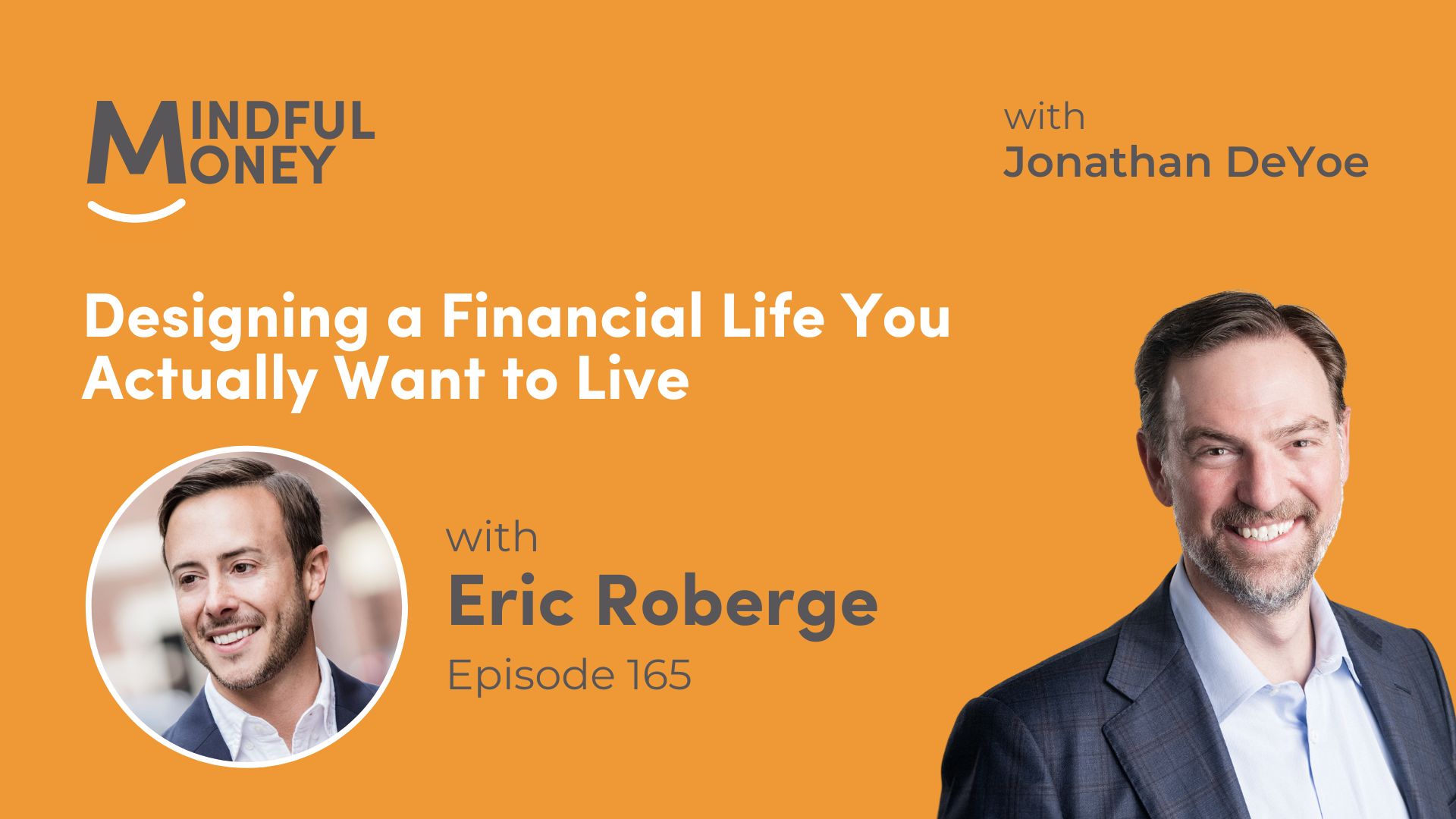This blog is the third of a 10-part series which covers everything you need to know to get started on your path to financial freedom:
1. The First Step in Any Financial Plan is NOT What You Think. We Start by Knowing What is Worth Seeking.
2. Developing Your Vision of a Perfect Life
3. Adopt a Savings Habit
4. Emergency Fund Basics
5. Eliminate High-Interest Debt
6. Saving and Investing for Retirement
7. Paying Down Low-Interest Debt and Building Taxable Savings
8. Simple, Basic, Mindful Investing
9. The Final Step – Portfolio Optimizers
10. The 10 Core Beliefs of Mindful Investors
There is NO secret to building wealth. Contrary to popular opinion, the steps to growing wealth are not sexy or tricky or speculative. Nor do they require personal brilliance or constant hands-on management.
What it takes to build wealth is within your power right now. Your financial success comes down to establishing healthy financial habits as early in your life as possible. And, whether you have a high- or low-income job, are young or old, you can adopt the habits that will help you achieve your money goals.
The single most important habit you can develop is the savings habit. It is the surest way to improve your financial well-being and begin the wealth building process.
After developing a vision of your ideal life –
which forms the foundation of your financial plan, informs the trade-offs you are willing to make, and sets your financial priorities –
the next step is to start saving. Admittedly, this is often easier said than done. Many people struggle to save. The following steps will help you turn saving from a loose goal into a lifelong habit.
Spend Less Than You Earn
The first – and most important – rule of personal finance: Spend less than you earn. The second rule of personal finance: Never forget the first rule. If there’s one money rule to live by in every season of your life, it is to spend less than you earn.
The best thing you can do for your financial health and happiness is to start the habit of saving as early in life as possible. I’d be lying to you if I said it was easy – it took me until my early 40’s to commit to a consistent savings habit. But you can do it, with continuous effort and reinforcement.
There are always cooler things to do with money than save, but it can quickly become a gratifying habit if you let it. Like removing the training wheels from your bike, you will like the feeling of control over your life that saving will give you.
Mind Your Balance Sheet
An effective mentality to take is to think of yourself as a small business. There are two crucial financial statements every business needs: the cash-flow statement and the balance sheet. The cash-flow statement tracks the money coming in and going out every month. The balance sheet is the cumulative effect of that cash flow, i.e., what you owe versus what you own.
Spend more than you make on a regular basis, and your balance sheet withers as debt grows. This inevitably ends in a failed business or a failed financial plan. Spend less than you make, and your balance sheet strengthens as your assets grow. Every successful business and financial plan starts here.
Your balance sheet includes your emergency fund, savings for medium-term spending goals, and investment for your long-term future. The most common purpose of your personal balance sheet is the ability to create a retirement income stream that rises with your rising cost of living and lasts the rest of your life.
One day, when you stop earning income – barring a massive windfall – you will rely on your balance sheet for the majority of your spending. The only way to reach that point is to start spending less than you earn many years in advance. And, consistently add to that balance sheet from your cash flow!
Many people make this an issue of having a greater income, but it isn’t as much about having more income as it is about making better spending choices with the income we have.
Empathize With Your Future Self
People don’t like saving in their younger years, because the future seems abstract and distant. But think of what your future self would ask of you today. Would they appreciate better financial decisions today for a better life in their future? Are you spending on anything today that they may look back on and regret?
If you said yes, don’t worry. You’re not alone. A 2019 Bankrate survey found that the majority of Americans have at least one financial regret, and the biggest of them all is not saving enough.
But you don’t have to live with regret. If you heed your future self’s call, you will enjoy that better life. Because every dollar you save now means much more freedom and enjoyment later.
Take Advantage of Compounding
One of the most powerful financial tools in your toolbox requires nothing of you other than saving. Once you have saved enough to set aside your emergency fund and pay off your high-interest debt, you can start taking advantage of compounding.
“Compound interest is the eighth wonder of the world. He who understands it, earns it… he who doesn’t… pays it.” – Albert Einstein
Once you start the engine of compounding, it will change the trajectory of your financial life.
Compounding means taking the earnings your savings or investments generate and adding them back into the pile. Then the money earned from that money earns money and the money earned from that money earns money and so on and so on. Compounding it the source of personal financial momentum.
When you carry debt, the momentum of compounding works against you. When you have invested savings, your financial momentum accelerates over time.
Compounding grows your savings and builds your wealth – requiring nothing from you. The compounding quickens the longer you continue participating. The sooner in your lifetime you begin the process of compounding, the higher your returns will be over time. Money that is left to compound for decades begins to produce staggering results.
But you can only reap those rewards if you start by saving.
Rank Your Priorities
The most effective way is to increase your savings is to remember your Vision. The life-vision we developed last week articulates your priorities. Once you know your vision, you know the difference between the “need-to-haves” and the “nice-to-haves” in terms of your personal well-being and happiness.
If you know you need to increase saving, you know which elements of spending to protect and which items can be traded away for greater future well-being. You can always cut out spending on the lower priorities – the things that mean less to your unique version of happiness – and save that money instead.
You should take your whole life into account when you do this. Saving for your child’s education may be more important than buying a larger house with a higher mortgage. Such a mindful trade-off in the present moment allows your whole life to unfold more happily.
Determine How Much You Should Save
A common rule of thumb is to permanently put away 10-15% of your paycheck starting when you’re young – in your 20’s if possible. Given enough time, this should allow you to maintain your current lifestyle upon retirement. If you’re starting late in life, you may need to save even more to catch up, especially if you want to retire at or near your full retirement age (67ish). Saving a set percentage guarantees that your savings remain proportionate to your income and lifestyle requirements.
If you can save more, do it. Getting started may be hard, but once you’re comfortable with whatever percentage, you won’t even notice it. Then it becomes easy to increase the percentage by 1% on occasion until you’re saving enough to meet your financial goals. The quicker you get your savings up, the sooner you will begin to knock down your most important financial goals.
If you haven’t been saving in this way, that’s okay – don’t beat yourself up. If you missed out on saving early in life, start now. And work to boost the amount you save as quickly as you can.
Put Your Savings on Autopilot
Of course, saving is difficult with all the temptations to live life to the fullest now. There is always a new streaming service and a new gadget. Friends and family will suggest grander vacations. And I can always justify spending money on my kids.
You can, however, reduce the possibility for temptation and commit yourself to saving for those critical goals by automating your savings. Pay yourself first. Out of sight, out of mind.
Anytime you can arrange for your savings to happen automatically, do it. Most banks offer some form of automatic savings transfers. If your employer provides you a 401(k) plan, you’ll be able to automatically deduct contributions from your paycheck. Not only is it an enforced habit, but the employer may also match your contributions (always save at least enough to capture such matching).
Remember, however, that saving alone isn’t enough to ensure a happy and financially secure future. You also have to be vigilant about spending – avoid saving enough while still spending on credit – and put your money to work by investing.
When these start to become habits, life becomes much easier, the possibilities in your financial life become much more bountiful, and you begin to build wealth.






